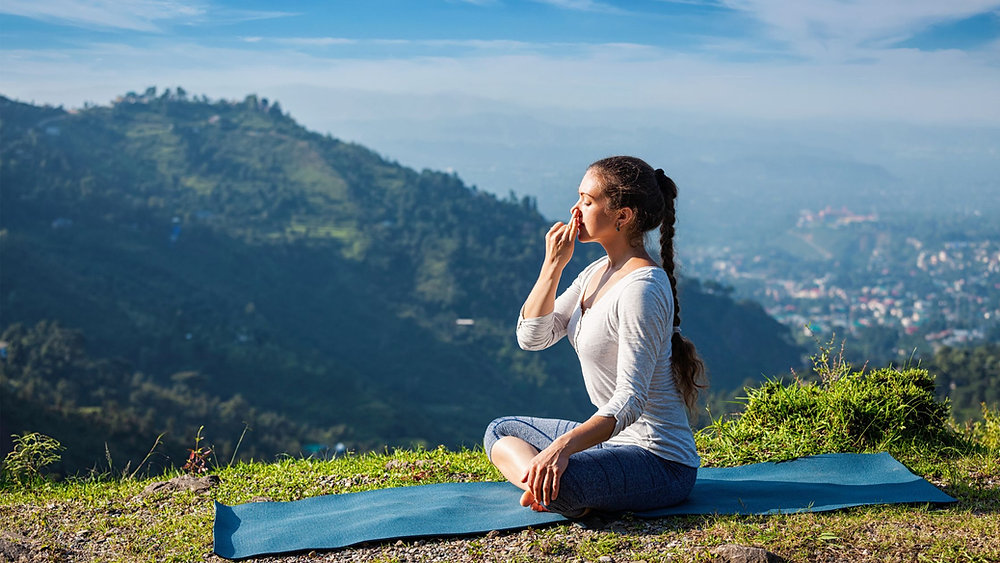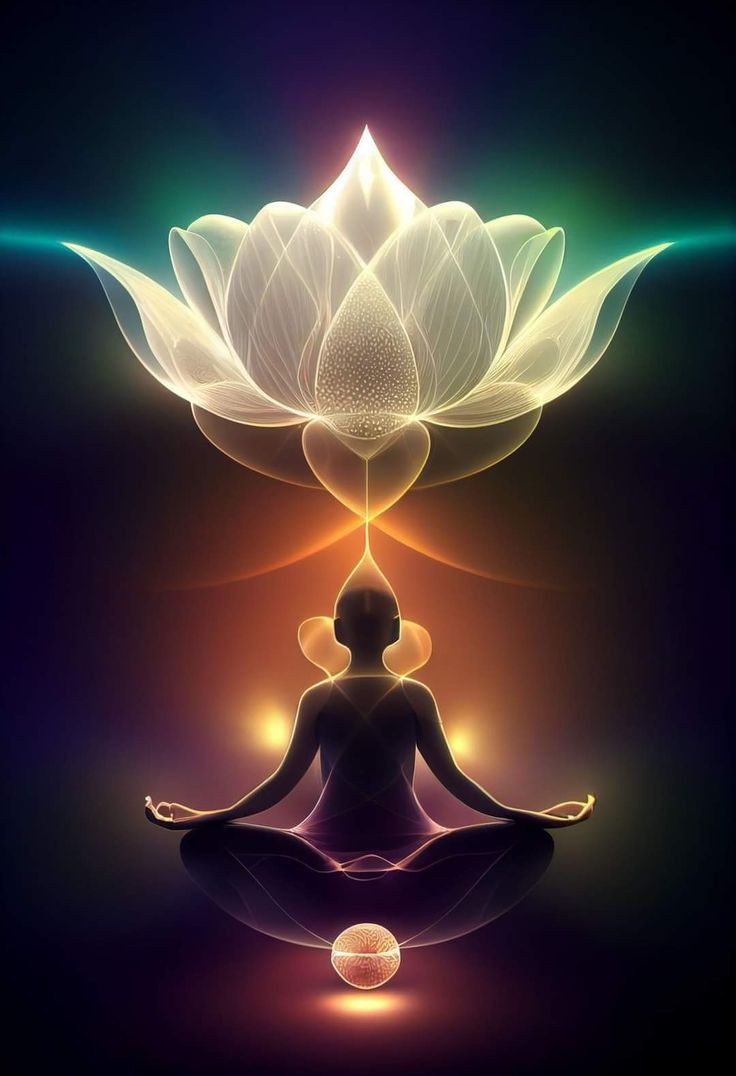ANXIETY AND ITS TREATMENT THROUGH YOGA AND AYURVEDA
Anxiety is almost epidemic in the modern higher tech world, though it is a long standing human problem
Anxiety is largely Vata Dosha disorder in Ayurvedic medicine, a problem that arises from an excess of the air and space elements and lack of earth, water and fire, not just in the body but also in the mind. This is the foundation of the Yoga and Ayurveda approach to anxiety that has many aspects outwardly and inwardly. It more commonly strikes Vata dosha types or those in whom Vata dosha is increased either at physical and psychological levels.
When Vata Dosha increases, in which the element of air predominates, the mind, emotions and subtle energies become disturbed. With the resulting sense of ungroundedness and volatility fear naturally arises in the mind. When this sense of fear becomes deep-seated and enduring it gives rise to anxiety, in which we can easily lose peace of mind and mental stability. While anxiety is more common in Vata dosha types it can occur in other types when such Vatogenic factors increase in their lifestyle or with the aging process.
Anxiety means that we are worried that something bad might happen to us, so much so that we imagine it occurring, even if it is not. Or anxiety can reflect a fear that something bad that did happen to us in the past will happen again, a reverberation of traumas.
Anxiety can be projected on to anything. We can become anxious about not having enough money, about our health, about our relationships, about our or work, our age, or even about our spiritual practice. It can be triggered by external or situational issues or by purely health concerns that increase with age. We can become anxious about the state of the world, the condition of people we know and not just ourselves. Certainly there is much in our current world and its stress and instability that can provoke anxiety in almost anyone.
When anxiety has set in we can become anxious about almost anything and conducting our ordinary activity can become wrought with misgivings. The specter of something negative that might occur puts us in a state of fear-based hesitation and paralysis that inhibits positive thoughts and responses. When collective issues come up like the coronavirus anxiety can give way to panic and individual anxiety can be linked to and augmented by collective anxiety.
Anxiety is a product of worry and is bred by thought. The more we think about something bad possibly happening, the more anxious we get. When the dreaded event doesn’t occur, we have become so obsessed with anxiety that we transfer it on to something else. Anxiety is common in those who have overly active minds, who are perfectionists and want everything to turn out as they want, who lack faith and trust and are worried about what might happen more so than being aware of what actually goes on.
Yet our current high tech way of life increases anxiety for everyone by removing us from the Earth and the organic basis of life. Anxiety is almost epidemic in our stressful, changing society in which we are overstimulated, have high expectations and depend upon technology for our wellbeing. When a computer crashes or a cell phone fails to work we quickly become anxious and are unable to go on with our ordinary activity.
Factors that Increase Vata Dosha and Promote Anxiety
Anxiety can be caused or stimulated by many factors arising from a lifestyle that is irregular, out of balance, or lacking in discipline. Anxiety can be situational, health based, behavioral or rooted in a wrong use of the mind and senses. It can be the result of trauma, accident or injury. In the case of the coronavirus uncertainty about the external world, combined with other anxiety prone conditions we may be subject to, combine to bring this problem.
Dietary factors of irregular meals or fast eating, or eating of food that is too cold or light in properties cause Vata dosha to increase, causing us to become ungrounded, malnourished, with an irregular metabolism and energy flow. The corresponding lack of physical strength causes the mind to be volatile and uncertain. Or simply nervousness can disturb our digestive equilibrium.
Lack of relaxation and rest, particularly lack of deep sleep, leave us depleted and unable to renew our energies. This can promote anxiety in the long run. Excessive worry in the mind can spiral out of control and become self-perpetuating, making is so that we never feel confident and assured, and remain in an anxious state.
With anxiety there is a lack of physical and psychological immunity. Physically we are agitated by environmental factors like wind, cold and dryness and become hypersensitive with allergies. We may be easily disturbed by noise and have strange sensations of touch, tingling or ringing in the ears. We become more vulnerable to colds, flu and infectious diseases.
Psychologically, we find it hard to cope with difficulties and opposition in life, or world problems. We cannot tolerate opposition, criticism or things not going our way. The world becomes too much for us to handle and we withdraw in fear. Or we can get swallowed up in the disturbances of the world and various fears linked to news events and world problems.
Treatment Methods
According to Yoga and Ayurveda anxiety or any other major psychological condition cannot be treated by drugs alone or even as the primary treatment. This is because the human being is a person and a consciousness, not a machine or chemical factory that can be treated by inorganic drugs. To truly change our psychology requires a change in our consciousness, behavior, perception and sense of self. We should not start out with drugs to treat anxiety unless other natural methods have already failed.
Yoga and Ayurveda provide us many tools for treating anxiety. We start with Yoga.
Deep and gentle asana practice done slow in a slow and gentle manner promoting stillness and relaxation, ultimately a calm sitting pose.
Deep and gentle pranayama absorbing positive prana on inhalation and relaxing and letting go of stress and anxiety on exhalation, allowing the breath to naturally deepen itself.
Pratyahara, including withdrawal from excess sensory stimulation of an electronic or media level, particularly anything violent, fearful or traumatic. Renewing ourselves with natural impressions of the sky, clouds, water, plants, rocks and vast natural vistas, like a mountain view.
Cultivating a strong power of attention and concentration by chanting mantras or fixing our gaze at various places from chakras within to outer objects and lights, like a candle flame or flame of an oil lamp.
A slow and gentle meditation cultivating peace, trust, faith, devotion and surrender to the Divine, developing Bhakti or devotion, surrendering anxiety to Divine love and presence.
Calming mantras like OM Shanti, the seed mantra Sham or Shreem or Kleem, or even Om Namah Shivaya!
Meditation that cultivates detachment and the state of the witness, observing the mind and its thoughts, rather than getting caught in their disturbances.
Connecting to our inner eternal Being, our true Self, and letting go of our obsession with the transient outer world as most important.
Bringing ritual back into our lives, attuning ourselves with the forces of nature, with incense, flowers, candles and ghee lamps etc. Pilgrimage, visiting temples, sacred sites in nature.
Right relationship with those who increase our sense of peace and wellbeing, honoring great spiritual teachers and deity forms, guru and Ishta Devata.
In terms of Ayurveda
A nutritive Vata-reducing natural foods diet, avoiding artificial foods, with adequate whole grains, beans and dals, nuts, root vegetables, dairy products, and oils, with regular eating habits and not eating between meals. Main meal at lunch time.
Herbs to calm the mind and increase Ojas (physical and psychological immunity) like ashwagandha, brahmi, manduka parni, shankha pushpi, and jatamamsi and preparations like Chyavan Prash, Brahma Rasayana, Ashwagandha Lehyam. These can be taken daily like food supplments.
Application of Ayurvedic massage oils to head and back like Balashwagandha, Chandanadi or simple sesame oil. Shirodhara or oil drip to the head and Ayurvedic massage overall. Taking oils internally, including Brahmi ghee, are very good also.
Aroma therapy with calming oils like sandalwood, khus (vetivert), lavender, lily, rose.
Ayurvedic retreats if possible, relaxing in nature.
Additional Considerations
For many people anxiety becomes obsessive and compulsive and so it is difficult to treat, particularly by oneself. Right association and right relationship are essential to address it but for this we have to reach out to others if we have anxiety. A supportive spiritual community can be very helpful and satsang. Time spent in nature comes into play here as well.
In addition to go beyond our anxiety we must stop being fixated upon our personal selves or looking for comfort and security externally. We should do service or karma yoga to help others. We should cultivate fearlessness. It is beneath your dignity as a center of eternal consciousness to be anxious about the transient world and let it dominate you. Affirm your inner strength and your higher awareness beyond body and mind! Then anxiety will not dare approach you.
Dr. David Frawley






